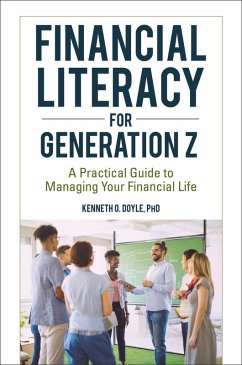This indispensable resource explains principles of financial planning and financial psychology to help teens and young adults make good financial decisions now and achieve their financial goals.
Financial literacy for savvy teens and young adults means meeting them where they are, which is in high school and college. It also means understanding how they differ from their Gen X and elder millennial parents. For example, they tend to be debt-averse, thrifty, and responsible but may err on the side of taking too little risk, such as not investing early enough. This book uses economics and psychology to help Generation Z students make better decisions throughout their lives and especially in their formative years.
Financial Literacy for Generation Z addresses decisions students have to make while still in school, after graduation, and later, with the greatest emphasis on the decisions closest at hand to them. It encompasses not just money talk-for example, how much to contribute to your 401(k)-but also decisions that are directly connected to money, such as choosing a major and a career, building a credit record, and managing your first real income.
Financial literacy for savvy teens and young adults means meeting them where they are, which is in high school and college. It also means understanding how they differ from their Gen X and elder millennial parents. For example, they tend to be debt-averse, thrifty, and responsible but may err on the side of taking too little risk, such as not investing early enough. This book uses economics and psychology to help Generation Z students make better decisions throughout their lives and especially in their formative years.
Financial Literacy for Generation Z addresses decisions students have to make while still in school, after graduation, and later, with the greatest emphasis on the decisions closest at hand to them. It encompasses not just money talk-for example, how much to contribute to your 401(k)-but also decisions that are directly connected to money, such as choosing a major and a career, building a credit record, and managing your first real income.









